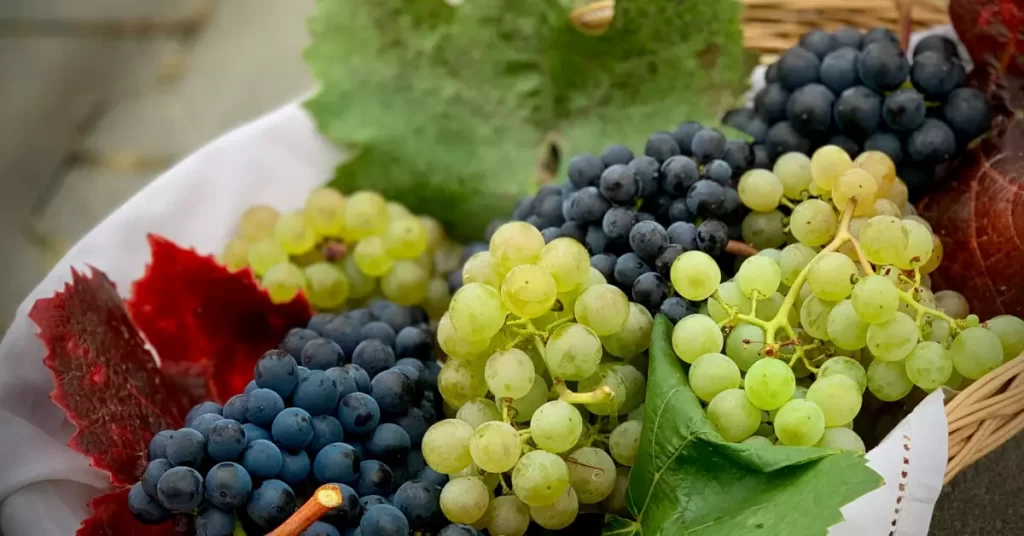Can Guinea Pigs Eat Grapes [Serving, Pros, And Cons]
![Can Guinea Pigs Eat Grapes [Serving, Pros ,and Cons] (1)](https://fluffydude.com/wp-content/uploads/2021/09/Can-Guinea-Pigs-Eat-Grapes-Serving-Pros-and-Cons-1.webp)
Guinea pigs are obligate herbivores, which means they eat only plants in their natural diet and their lifespan is 4 to 8 years. There are numerous additional products your guinea pig needs for good nutrition and health, combined with high commercial feed that is particularly made for guinea pigs.
Many individuals are aware that grapes, like most fruits, are a nutritious and tasty snack, but you may have questioned if the same is true for guinea pigs.
Guinea pigs may eat grapes in modest amounts, and grapes are not harmful to guinea pigs and are high in minerals and vitamin C.
Due to the high sugar content of grapes, restrict servings to 2 grapes per pig, 2-3 times per week to minimize health issues. Grapes are a nutritious guinea pig snack with many health advantages, but there are a few things you should know before giving them to your pig to avoid health concerns.
Types Of Grapes:

Grapes may be found in almost every country. Grapes come in almost 8000 distinct varieties. All of them are beneficial to one’s health in the same way.
Some varieties are used to make wine, while others serve as fresh fruit at the table, and yet others are used to make raisins. Most of us primarily think about grapes in terms of their colors because different colors have different tastes.
Do Different Color Grapes Have Different Effects On Guinea Pigs?
It’s not easy to explain which hue grapes are healthier for guinea pigs. On the other hand, according to scientific studies, sweet grapes are not hazardous to the health of guinea pigs.
They can eat any grape kind, green, purple, or red, but only in moderation. Purple grapes are preferable to green grapes since they contain less sugar than the others.
The antioxidant content of purple grapes is greater than green grapes, and red grapes are superior to all others.
How To Serve Your Guinea Pig A Grapes?
Grapes offer several important advantages for guinea pigs, although they are far from perfect meals. This is due to grapes’ high sugar content. Sugar consumption must be limited in guinea pigs due to their tiny stature.
The best recommendation is to give a guinea pig no more than 1-2 medium grapes every week. This is a serving, and it should be regarded as a treat rather than a regular part of the diet.
Other fruits, such as apples and strawberries, can be tried in addition to grapes. Finally, grapes pose a slight danger of choking. Fortunately, guinea pigs have sharp tiny teeth, so this is an uncommon occurrence.
However, you must always cut your grapes in halves initially to help lower that danger. Hold the grape in one hand after cutting it in half, and your guinea pig will gladly lick and chew it out of your palm.
This is also an excellent method to strengthen your relationship with your guinea pig. You may even peel the grape if you want to be extra cautious. This eliminates one of the most serious choking hazards.
However, it is worth mentioning that it will lower the quantity of fiber consumed by the guinea pig. Some health advantages (fiber aids digestion, blood pressure, and more – it even helps clean teeth) will be lost.
Typically, guinea pigs should avoid eating grapes that include stones or seeds. These are not only more poisonous than the grape, but they can also cause choking. While it is feasible to remove the seeds manually, it is generally preferable to start with seedless grapes.
If you follow these guidelines, your guinea pig should enjoy eating grapes from your hand while also reaping a slew of health advantages.
Are Grapes Bad For Guinea Pigs?
Grapes are typically healthful fruits that pose no significant health concerns to humans. Are grapes, on the other hand, poisonous to guinea pigs? Although grapes are not harmful to guinea pigs, there are a few hazards to be aware of if your guinea pig consumes them. Nonetheless, these dangers are readily managed.
Some of the health concerns of grapes for guinea pigs include,
High Sugar Content:
Grapes contain a lot of sugar, which might cause problems in the body of your guinea pig. Diarrhea and vomiting are two of the most common issues that might occur. When your little pet eats too many sugary foods, it might develop the symptoms listed above.
If you observe this, you should take your pet to the veterinarian for treatment. Otherwise, you can give it plenty of water and cease feeding it grapes as a first-aid treatment. Another consequence of eating too much sugar is the possibility of gaining weight.
Food Poisoning:
This is an uncommon occurrence, although it might occur if grapes are not handled properly. To eliminate any dirt or chemicals, you must wash or rinse the fruit well under continuous water before feeding it to your cavy.
Is It Safe For Guinea Pigs To Eat Grapes Every Day?
No way, if you think grapes are so little that they may give guinea pigs distress, check the size of guinea pigs. For them, grapes may be comparable to watermelon. Consider how you’d feel if you ate a large watermelon every day. Naturally, you will have stomach discomfort, food poisoning, or begin to gain weight.
Do Guinea Pigs Eat Grape Leaves?
There is no scientific evidence to support our assumption that leaves are beneficial to them. For small guinea pigs, not all varieties of grass or leaves are suitable.
Grape leaves are not toxic but unappealing; therefore, it is best to avoid grapevines. Some individuals feed their guinea pigs leaves, and their guinea pigs are well. You can see if your pig likes it or not.
Can Guinea Pigs Eat Grape Tomatoes?
Grape tomatoes are safe for guinea pigs to consume, and they enjoy them. Guinea pigs eat many kinds of tomatoes, including grape, cherry, Roma, and other varieties.
This vegetable is healthy and pleasant for guinea pigs; it acts like normal food and a reward. The flesh, seeds, and peel of grape tomatoes are all edible. The stem and leaves of any variety of tomato are harmful to guinea pigs and should be avoided at all costs.
The super-tasty grape tomatoes are impossible to resist. They’re delicious on their own, in salads, as a topping on dishes, or in smoothies – they’re flexible, nutritious, and delicious! Fortunately, our guinea pigs enjoy them as well. Grape tomatoes are very popular with kids, especially if they are fresh and crisp.
Final Thoughts:
Guinea pigs can eat grapes, but only in moderation. Vitamins and other nutrients are abundant in grapes. The grape seed should be discarded, and the grapevine should not be fed to them since it may cause indigestion. Pigs are unable to use dried grapes. Whenever you bring a new diet to your pet, keep a close eye on their behavior, stool color, and sleeping patterns.

